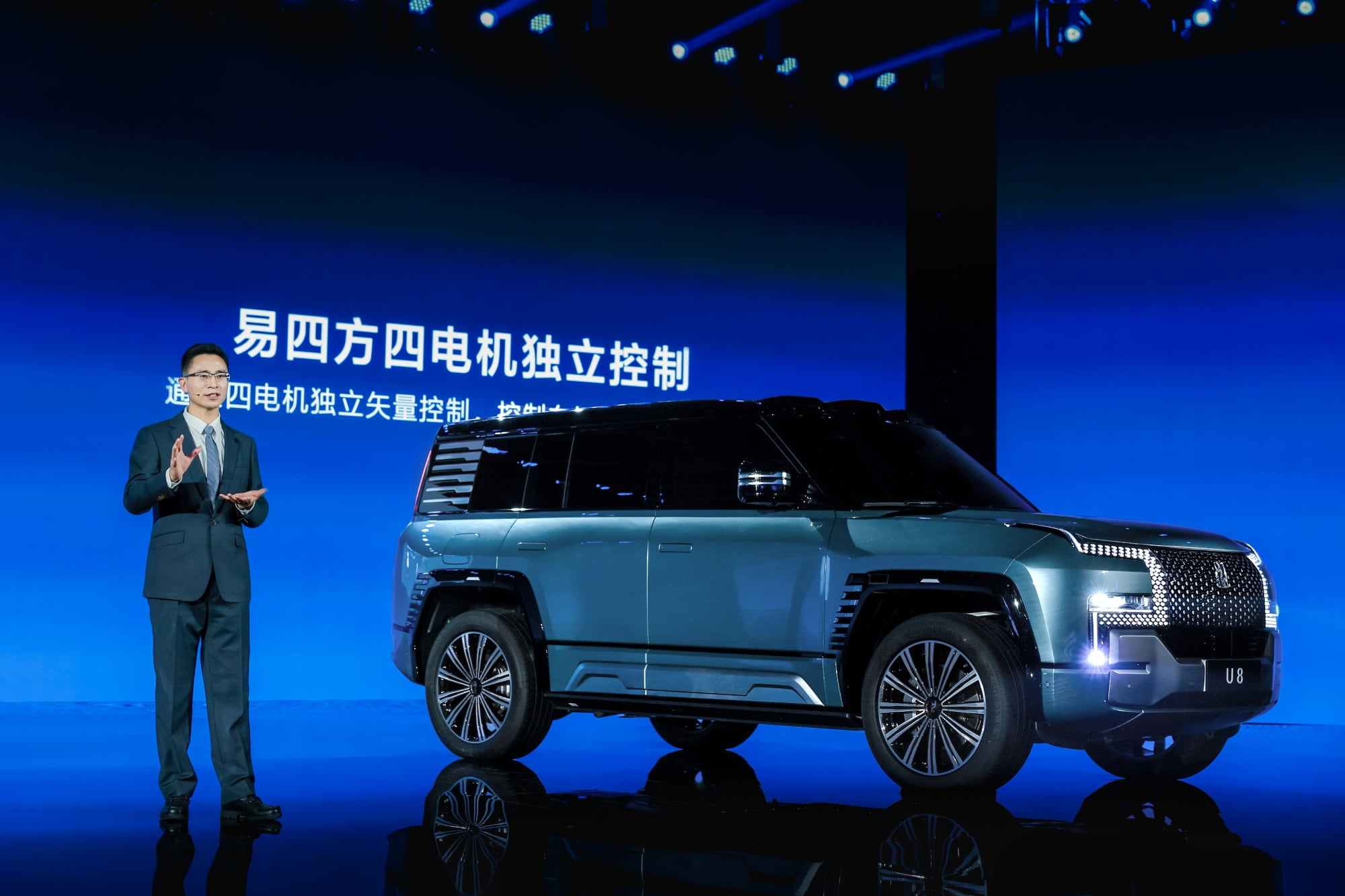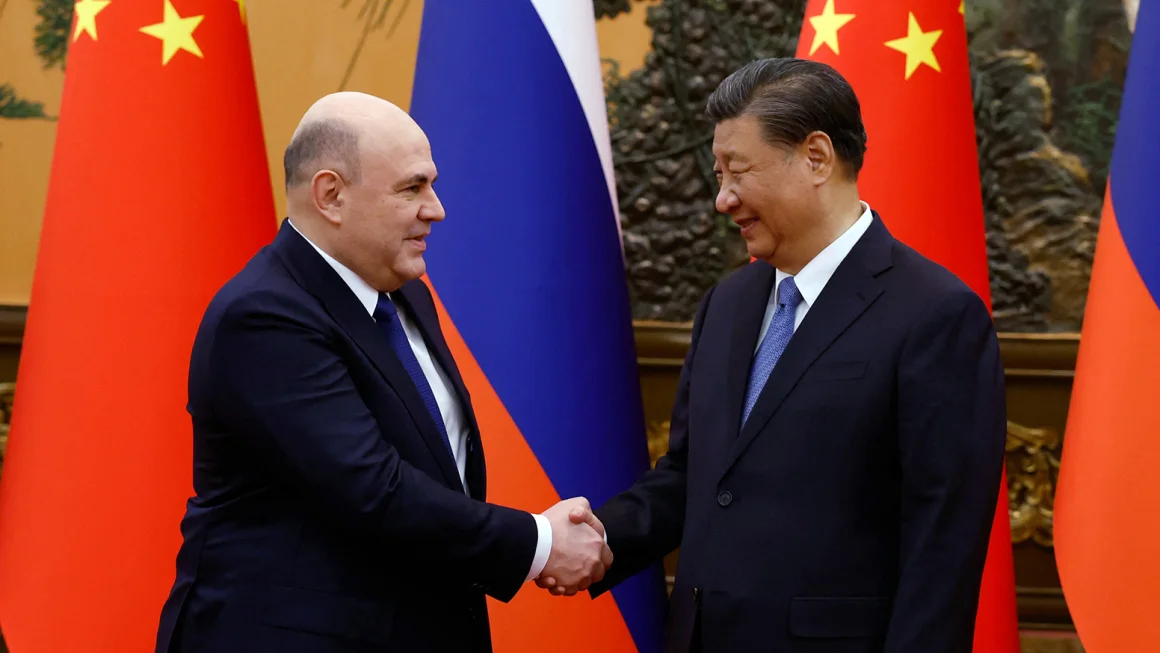BYD’s Electric Cars: The Game-Changer Elon Musk Didn’t Predict

Electric Car Maker BYD Electric Cars Races Ahead of Tesla in China
In the realm of electric vehicles, Tesla has long been regarded as the unrivaled trailblazer, the quintessential pioneer of green automotive technology. However, the landscape is changing, and in the rear-view mirror of the electric car industry, a Chinese rival is fast approaching. This underdog is none other than BYD Electric Cars, or “Build Your Dreams,” and it’s rapidly gaining ground on Tesla.
As we delve into this electrifying competition, it becomes clear that BYD remarkable success isn’t just a testament to its ingenuity but also a reflection of China’s surging auto industry, which is poised to overtake the world. This story is both a bright spot and a warning for Western nations as they grapple with their reliance on Chinese-made goods.
[ez-toc]
BYD: From Batteries to Electric Dreams
One of the key factors that set BYD apart from other car manufacturers is its origin. Unlike many competitors who ventured into electric cars, BYD Electric Cars started as a battery company. Founded in 1995 in Shenzhen, China, it initially made a name for itself producing rechargeable batteries used in various electronic devices. These batteries were cost-competitive with pricier Japanese imports, establishing BYD as a formidable player in the global battery market.
In 2002, BYD became a publicly traded company. Not long after, it diversified by acquiring a struggling state-owned car manufacturer, Qinchuan Automobile Company. This strategic move coincided with Beijing’s decision to promote renewable energy production, introducing subsidies and tax breaks for electric vehicles.
BYD’s foray into electric cars was timely. They had the batteries needed to power electric vehicles effectively. In 2008, Warren Buffet recognized this potential and invested in BYD, predicting its rise to become a dominant force in the electric car market. Today, China leads global electric vehicle production primarily due to BYD’s contributions.
Why BYD is Winning the Race
Analysts attribute much of BYD’s success to its core business: batteries. Batteries constitute a significant portion of an electric vehicle’s cost, and BYD’s ability to produce them in-house offers a distinct advantage over competitors like Tesla, which rely on third-party manufacturers.
According to a UBS report, BYD’s entry-level EV, the Seagull, sells for around $11,000, while Tesla’s Model 3, produced in China, starts at nearly $36,000. This significant price difference is a testament to BYD’s cost efficiency and ability to make EVs more affordable.
Beyond the EV market, BYD Electric Cars have also made inroads as China’s top-selling car brand, surpassing even the likes of Germany’s Volkswagen. It’s a remarkable achievement, further underscoring the company’s growing influence.
BYD Electric Cars Versus Tesla: A Changing Landscape
If we revisit history, Elon Musk once laughed off BYD and its Chinese competitors. Back then, Tesla was still a fledgling publicly traded company and had only just revealed its prototype for the Model S. However, in the present day, the tables have turned.
Recent data from the China Passenger Car Association indicates that Tesla’s sales of Chinese-made EVs have seen an almost 11% decrease compared to the previous year, with 74,073 units sold in September. In stark contrast, BYD sold a whopping 286,903 cars during the same period, marking an almost 43% increase in EV and hybrid model sales.
This ironic twist highlights Tesla’s role in popularizing EVs in China. Before Tesla’s arrival, green incentives failed to entice Chinese consumers. Even today, Tesla remains a favored EV brand among younger buyers.
Global Expansion and Future Challenges
While Tesla is still a formidable force in the electric vehicle market, it’s evident that BYD’s success poses a significant challenge. Tesla has ambitious plans to expand its presence in China, including the construction of massive battery warehouses to power charging stations. However, growing tensions between Washington and Beijing have prompted Elon Musk to explore alternative markets, such as India.
As green incentives to combat climate change expand, legacy automakers that rely on internal combustion engines are facing an existential crisis. By 2030, analysts predict a seismic shift, and the likes of Europe and the UK are struggling to compete. However, concerns about China’s practices may lead to regulatory changes that could limit the accessibility of the European market to Chinese car manufacturers.
In this ever-evolving landscape, BYD Electric Cars are affordable, green cars are gaining traction in Europe, a continent grappling with inflation and energy costs. These factors, combined with a demand for affordability, make BYD a compelling choice for many consumers worldwide.
Conclusion
BYD Electric Cars are on a remarkable journey from a battery company to a global electric car leader is a testament to China’s growing influence in the auto industry. Its success has not only disrupted the traditional electric vehicle market but also posed new challenges for established players like Tesla. As the world transitions to cleaner technologies, BYD’s story serves as a compelling example of China’s growing dominance in global markets.











